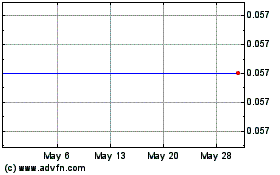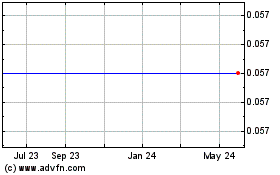Codiak Presents Preclinical Data on exoASO™-STAT6 and exoASO™-C/EBPβ Programs at the Society for Immunotherapy of Cancer (SITC) 2022 Annual Meeting
November 10 2022 - 8:00AM

Codiak BioSciences, Inc. (NASDAQ: CDAK), a clinical-stage
biopharmaceutical company pioneering the development of
exosome-based therapeutics as a new class of medicines, today
announced new preclinical data from its exoASO™-STAT6 and
exoASO™-C/EBPβ programs. exoASO-STAT6, an engineered exosome
precision medicine candidate designed to selectively deliver
antisense oligonucleotides to disrupt STAT6 signaling in
tumor-associated macrophages (TAMs) and induce an anti-tumor immune
response, demonstrated a strong preclinical pharmacokinetic (PK)
and pharmacodynamic (PD) profile in preclinical models. Codiak has
also identified PD biomarkers with clinical translational potential
and described a rationale for selecting cancer subtypes that could
benefit from treatment with exoASO-STAT6.
exoASO-C/EBPβ further demonstrated it is a novel therapeutic
that selectively targets and attenuates a critical transcription
factor in immunosuppressive myeloid-derived suppressor cells
(MDSCs), resulting in their immune modulation and potent systemic
anti-tumor activity across multiple MDSC-rich tumor models.
Anti-tumor activity is mediated by the broad delivery of
exoASO-C/EBPβ-targeting antisense oligonucleotides (ASOs) to
extra-hepatic myeloid cells in disseminated tumors throughout the
body.
“Taken together, these data presented at SITC paint a compelling
picture of the potential of our programs and our platform. Our work
on exoASO-STAT6 highlights broad activity across multiple
challenging, checkpoint therapy-resistant preclinical models,
robust and consistent translation from these models to clinical
readiness, and our PD-driven approach to patient selection.
Targeted delivery to hepatic TAMs in HCC represents a novel
strategy for the precise delivery of drug payloads to the right
population of patients,” said Sriram Sathyanarayanan, Ph.D., Chief
Scientific Officer, Codiak. “Our data with exoASO-C/EBPβ
demonstrate the potential for broad anti-tumor activity in
extra-hepatic tumors mediated by a differentiated mechanism of
myeloid cell (monocyte and MDSC) delivery of ASOs to distant tumor
sites, leading to modulation of MDSCs and resulting in a T-cell
mediated anti-tumor activity.”
Key conclusions from the preclinical studies on exoASO-STAT6 at
SITC 2022 include:
- Systemic administration of exoASO-STAT6 in mice and NHPs
resulted in a durable, dose-dependent retention of the STAT6 ASO in
the liver, detectable for up to 21 days at all dose levels.
- Systemic dosing of exoASO-STAT6 in preclinical models resulted
in a durable, dose-dependent reduction of STAT6 mRNA in the liver,
as well as a modulation of several downstream pathway genes.
- In line with its durable PK/PD attributes, exoASO-STAT6
demonstrated strong single agent antitumoral efficacy across
multiple tumor models with local or systemic dosing.
- Histological analysis confirmed that STAT6 and IL-4 receptor
(IL4R) are expressed by TAMs in human HCC tumors, supporting the
rationale to use these two biomarkers in the clinic.
- A STAT6 macrophage transcriptional signature was identified,
which is enriched at high levels in a subset of HCC patients and
correlates with poor prognosis in HCC and other tumors such as
bladder and stomach cancer.
Key conclusions from the preclinical studies on exoASO-C/EBPβ at
SITC 2022 include:
- Exosome surface glycoproteins enabled the precise uptake of ASO
payloads by MDSCs and monocytes, which facilitated the delivery of
ASOs to distant extra-hepatic tumor sites. This novel mechanism
opens the potential for targeting a broad range of tumors with
Codiak’s exoASO™ platform.
- Systemic administration of exoASO-C/EBPβ resulted in immune
modulation of MDSCs, resulting in a T-cell mediated systemic
anti-tumor response, which was further elevated by combining with
anti-PD1 therapy.
- Treatment with exoASO-C/EBPβ across multiple routes of
administration demonstrated robust monotherapy efficacy in several
challenging, checkpoint therapy-resistant preclinical models,
exhibiting the potentially broad applicability of exoASO-C/EBPβ in
the treatment of several cancer indications. Patient populations
across The Cancer Genome Atlas (TCGA) database were also evaluated
based on the expression of multiple C/EBPβ and MDSC-related gene
signatures to assess potential cancer indications for
exoASO-C/EBPβ.
“The data presented at SITC this year further demonstrate the
potential of Codiak’s approach to targeting transcription factors
in distinct macrophage and MDSC subpopulations with exoASO-STAT6
and exoASO- C/EBPβ,” said Douglas E. Williams, Ph.D., CEO, Codiak.
“We are enthusiastic about the ongoing Phase 1 clinical study of
exoASO-STAT6 and are on track to have preliminary monotherapy data
in the first half of 2023.”
About exoASO™-STAT6 Codiak’s exoASO-STAT6 is an
engineered exosome investigational therapeutic candidate designed
to selectively deliver antisense oligonucleotides (ASOs) to disrupt
STAT6 signaling in tumor-associated macrophages (TAMs) and induce
an anti-tumor immune response. exoASO-STAT6 is Codiak’s first
clinical candidate to evaluate a systemically administered
exosome-based drug candidate. A Phase 1 clinical trial evaluating
exoASO-STAT6 in patients with advanced hepatocellular carcinoma,
liver metastases from primary gastric cancer, and colorectal cancer
is underway.
In multiple in vivo preclinical studies, exoASO-STAT6
demonstrated potent single agent activity, including >90% tumor
growth inhibition and 50-80% complete responses. In HCC models,
exoASO-STAT6 induced significant knockdown of STAT6 mRNA,
attenuated tumor growth and induced complete remission of tumor
lesions in 50% of mice. This anti-tumor activity was enhanced (75%
complete remissions) when exoASO-STAT6 was administered with
anti-PD1 antibodies. The monotherapy activity was accompanied by
remodeling of the tumor microenvironment, including significant
expansion of M1-like macrophages and induction of an adaptive
anti-tumor immune response, enabling tumor elimination.
About exoASO™-C/EBPβCodiak’s exoASO-C/EBPβ is
designed to selectively deliver ASOs to down-modulate C/EBPβ, a
transcription factor that regulates the immunosuppressive phenotype
in TAMs and circulating myeloid-derived suppressor cells (MDSCs),
two sub-populations of myeloid cells. High levels of C/EBPβ
expression are associated with poor prognosis in multiple cancers,
including non-small cell lung cancer (NSCLC).
In previous studies, In vivo, systemic administration of
exoASO-C/EBPβ resulted in efficient delivery of ASOs to MDSCs,
resulting in > 5-fold improvement in tumors and 11 to 12-fold
improvement in the circulating blood compared to delivery of a
non-exosome (or “free”) ASO. This precise cell targeting was
coupled with effective silencing of C/EBPβ and a remodeling of the
tumor microenvironment indicative of activation of an immune
response. In a variety of in vivo tumor models, exoASO-C/EBPβ
monotherapy generated up to 70% complete responses and, when
combined with anti-PD1, significantly increased complete response
rates to 90%. Notably, in a lung tumor model with widely dispersed
tumors, systemic administration of exoASO-C/EBPβ resulted in
resolution of tumor burden throughout the body. The profound
monotherapy activity observed with exoASO-C/EBPβ in multiple tumor
models refractory to anti-PD-1 therapy highlights the potential of
this therapy to treat multiple anti-PD1 refractory patient
populations.
About the engEx® PlatformCodiak’s proprietary
engEx Platform is designed to enable the development of engineered
exosome therapeutics for a wide spectrum of diseases and to
manufacture them reproducibly and at scale to pharmaceutical
standards. By leveraging the inherent biology, function and
tolerability profile of exosomes, Codiak is developing engEx
exosomes designed to carry and protect potent drug molecules,
provide selective delivery and elicit the desired pharmacology at
the desired tissue and cellular sites. Through its engEx Platform,
Codiak seeks to direct tropism and distribution by engineering
exosomes to carry on their surface specific targeting drug
moieties, such as proteins, antibodies/fragments, and peptides,
individually or in combination. Codiak scientists have identified
two exosomal proteins that serve as surface and luminal scaffolds.
By engineering the exosome surface or lumen and optimizing the
route of administration, Codiak aims to deliver engEx
exosomes to the desired cell and tissue to more selectively
engage the drug target, potentially enhancing the therapeutic index
by improving potency and reducing toxicity.
About Codiak BioSciencesCodiak is a
clinical-stage biopharmaceutical company pioneering the development
of exosome-based therapeutics, a new class of medicines with the
potential to transform the treatment of a wide spectrum of diseases
with high unmet medical need. By leveraging the biology of exosomes
as natural intercellular transfer mechanisms, Codiak has developed
its proprietary engEx Platform to expand upon the innate properties
of exosomes to design, engineer and manufacture novel exosome
therapeutic candidates. Codiak has utilized its engEx Platform to
generate a deep pipeline of engineered exosomes aimed at treating a
broad range of diseases, spanning oncology, neuro-oncology,
infectious disease, and rare disease. For more information,
visit http://www.codiakbio.com and follow @CodiakBio.
Forward-Looking StatementsThis press release
contains “forward-looking statements” within the meaning of the
Private Securities Litigation Reform Act of 1995, including, among
other things, statements concerning the development and therapeutic
potential of exoASO-STAT6 or exoASO-C/EBPβ, including timing of
availability and release of data from development of those
candidates, and statements regarding the capabilities and potential
of Codiak’s engEx Platform and engineered exosomes generally. Any
forward-looking statements in this press release are based on
management’s current expectations of future events and are subject
to a number of risks and uncertainties that could cause actual
results to differ materially and adversely from those set forth in
or implied by such forward-looking statements. For a discussion of
these risks and uncertainties, and other important factors, any of
which could cause our actual results to differ from those contained
in the forward-looking statements, see the section entitled “Risk
Factors” in Codiak’s Annual Report on Form 10-K for the
year ended December 31, 2021, and in subsequent filings with
the Securities and Exchange Commission, as well as discussions of
potential risks, uncertainties and other important factors in
Codiak’s subsequent filings with the Securities and Exchange
Commission. All information in this press release is current as of
the date of this report, and Codiak undertakes no duty to update
this information unless required by law.
Investor Contact:Christopher TaylorVP, Investor
Relations and Corporate CommunicationsT: 617-949-4220E:
investor@codiakbio.com
Media Contact:Cory TrombleeScient PRE:
media@codiakbio.com
Codiak BioSciences (NASDAQ:CDAK)
Historical Stock Chart
From Dec 2024 to Jan 2025

Codiak BioSciences (NASDAQ:CDAK)
Historical Stock Chart
From Jan 2024 to Jan 2025
